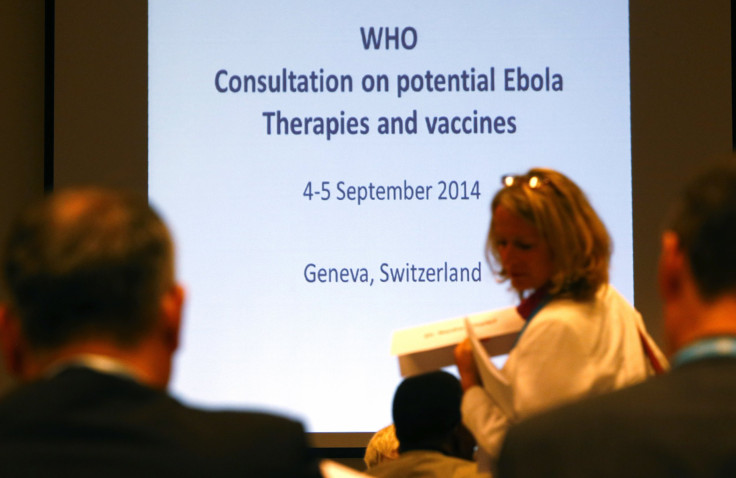Ebola Outbreak: World Health Organization Officials Meet For Second Day To Discuss Treatments, Vaccines

The World Health Organization, or WHO, on Friday began a second day of an urgent two-day meeting in Geneva to discuss different therapies to contain the Ebola epidemic. And while the stock of ZMapp, an experimental drug, has been exhausted, officials said they are working to speed up clinical trials on other drugs.
The closed-door meeting with nearly 200 health experts will discuss eight more therapies as well as two vaccines, according to Agence France-Presse, or AFP. None of these options have been clinically proven and WHO reportedly said that it does not expect the drugs to be ready for widespread use before the end of the year. WHO also said that it expects to get a few hundred doses of ZMapp ready by the end of 2014, AFP reported.
"None are clinically proven," the WHO said in a working document for the meeting, according to Al Jazeera, adding that "while extraordinary measures are now in place to accelerate the pace of clinical trials, new treatments or vaccines are not expected for widespread use before the end of 2014."
In a statement from the United Nations, WHO said: “There is intense public interest in, and demand for, anything that offers hope of definitive treatment. A range of unproven interventions-blood products, immune therapies, drugs and vaccines are under different stages of development but none have yet been licensed for standard use.”
Countries including Guinea, Sierra Leone and Liberia are struggling to keep the disease contained even as doctors treating the patients are also at increasing risk of infections. The deadly disease has so far claimed more than 1,900 lives while more than 3,500 people have been infected and are waiting for a cure. ZMapp has been given to nearly 10 health workers so far, but WHO is rushing to find more drugs that could cure or contain the disease's spread.
"Everybody keeps asking why isn't this medication made available to our people out there?" Samuel Kargbo, an official at Sierra Leone's ministry of health, said, according to AFP, adding: "Our doctors who have been treating patients are also dying, and it's not made available."
© Copyright IBTimes 2024. All rights reserved.






















